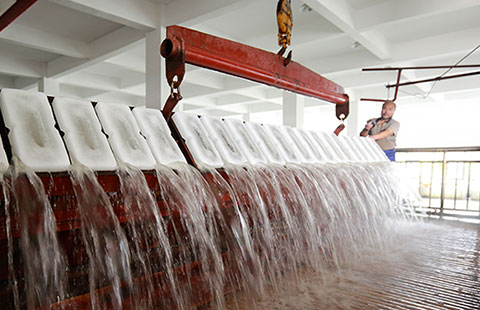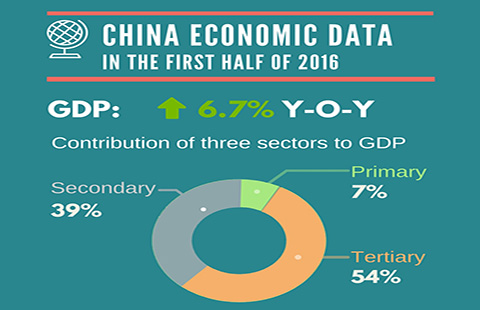China box office falls after subsidy cuts
By Zhu Wenqian and Ouyang Shijia (China Daily) Updated: 2016-07-27 07:51
 |
|
Poster of the film Big Fish & Begonia. [Photo/VCG] |
The country's box office dropped 4.6 percent in the second quarter of 2016, according to statistics from the National Film Development Funds Management Committee. This compared with a record 44 billion yuan ($6.6 billion) box office for the same period last year.
The box office fall, the first in half a decade, is due to a subsidy reduction and therefore has weighed down the stock performance of the major listed film companies.
Wang Changtian, CEO of Enlight Media Co Ltd, one of China's top film companies, said that the shrinking box office in China is in large part the result of the subsidy reduction.
"After the subsidy decreases, the audience will not buy as many tickets as they did before. This will show their real consuming capacity. In fact, the ticket price may be a little bit higher for them," he said.
In the period from July 1 to Monday, the total domestic box office was 3.76 billion yuan, dropping 18.6 percent compared with 4.62 billion yuan of sales in the same period last year, according to data from a Chinese real-time box-office data site called Maoyan.
Industry sources said a few blockbuster Chinese films, such as Lost in Hong Kong and Monster Hunt, have been the subject of allegedly inflated reported box office sales.
The phenomenon is a practice in the industry, where many film producers will reserve some costs for box office allowances.
Moviegoers can usually buy film tickets at a discount, and producers will subsidize the remainder of the full price, which can be regarded as a promotional activity. However, if there is no real demand to see the film but producers buy the tickets in advance, this is considered illegal.
Of last year's 44 billion yuan reported box office, about 3 billion yuan to 5 billion yuan came from such allowances.
Industry sources said the illusion of a high box office actually harms China's film industry and will lead to market bubbles and disorders.
- Risks still facing the economy
- Gionee launches new handsets for business market
- Huawei ups H1 shipments by 25%
- Top 10 brands creating most positive buzz in China
- China ratifies UN TIR Convention to boost trade
- First Xiamen Airlines flight touches down in N America
- Huawei revenue soars, eyes expansion
- China market helps maintain New Zealand trade surplus in June


















